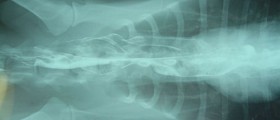
More information on erythromycin and when to use it
Erythromycin is an antibiotic medication which can be found in various forms, and which can also be an ingredient of some other medication. There is a wide range of conditions that can be treated by erythromycin, but most commonly it is used in the treatment of bacterial infections, since it is very effective when their multiplication or growth have to be stopped or controlled. However, there are bacteria that do not react to this medication, as well as those that, over time, have become resistant, and so they simply have to be treated with some other type of antibiotic. On the other side, infections caused by viruses cannot be treated with erythromycin either.
Possible side effects and ways to prevent some of them
Generally, this medication is tolerated well, but just like almost every other medication, this one also may provoke certain adverse reactions, and it is not always possible to predict when something like that will occur. Some of the side effects can be prevented, because it is well-known, especially among doctors, that it should not be prescribed to patients who have some kind of problems with liver and kidneys, or those who suffer from arrhythmia and myasthenia gravis. Also, some people may be allergic to this medication, and this should be mentioned to the doctor in advance, because otherwise, very serious complications are possible, and even death. Also, in order to prevent possible interactions with some other medications, the doctor has to make sure that the patient is not already taking some medications from the group of calcium channel blockers, carbamazepine, birth control pills, benzodiazepine or statins, for example, because these types of combinations may also lead to serious side effects.
As for the side effects, they depend on the form of the drug that is being taken, because if taken orally or as injection, the possible side effects include nausea, vomiting, pain in the stomach, and diarrhea. If erythromycin is a part of some skin product that is intended for the treatment of acne, then side effects that can be experienced are tenderness and dryness of the skin, as well as itching and redness, or even peeling. However, these are all temporary symptoms, and they usually do not need to be reported to the doctor, because they disappear very soon. The signs that should be reported right away are the signs of jaundice, dark urine and pain in the upper abdomen, because they indicate some problems with liver. Also, signs indicating myasthenia gravis, such as weakness of muscles and blurred vision, should also be reported, as well as persistent vomiting or bloody diarrhea, and signs of allergic reaction.

















Your thoughts on this
Loading...